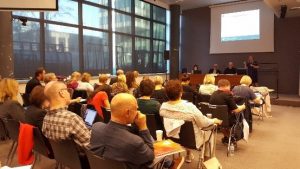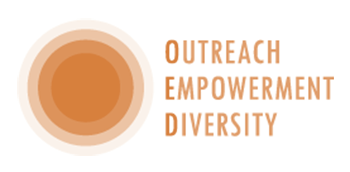Engaging socially and educationally disadvantaged adults in lifelong learning is possible: find out how in the implOED manual.
The Implementing Outreach, Empowerment and Diversity project (implOED) has just launched a comprehensive and hands-on document which will help policy makers and practitioners in the field of adult education and beyond to improve practitioners’ skills as adult educators, involve learners in self-determination of their learning and to find out what makes a difference at policy level.
The goal is to achieve increased social justice, emancipation, integration and inclusion. As such, both the education sector and society will benefit from the long-term positive impact of implementing the approaches detailed in the implOED manual.
 The manual, which is now available on the project website:
The manual, which is now available on the project website:
- Presents the practice of inclusion – focusing on outreach, empowerment and diversity
- Shows that these models can be tailored to fit all adult education settings
- Builds a dialogue between policy makers and practitioners
- Informs and supports collaboration between all in this field.
 This outstanding piece of work was also presented at the implOED final conference “Transforming lives, society and adult education through outreach, empowerment and diversity” which took place in Brussels on the 17th of October 2018. More than 40 practitioners and policy-makers got together to discuss how to outreach to people currently not participating in learning, how to empower adult learners and how to increase and value diversity in non-formal adult education. Find out more by reading the conference report.
This outstanding piece of work was also presented at the implOED final conference “Transforming lives, society and adult education through outreach, empowerment and diversity” which took place in Brussels on the 17th of October 2018. More than 40 practitioners and policy-makers got together to discuss how to outreach to people currently not participating in learning, how to empower adult learners and how to increase and value diversity in non-formal adult education. Find out more by reading the conference report.
‘Outreach is one of the key challenges of adult education – our manual will support both policy-makers and practitioners to make a difference’, says Gina Ebner, EAEA Secretary General. ‘We want to create a better understanding for the changes that are necessary to reach out to and to empower learners.’
Text: Francesca Operti photos: Aleksandra kozyra
